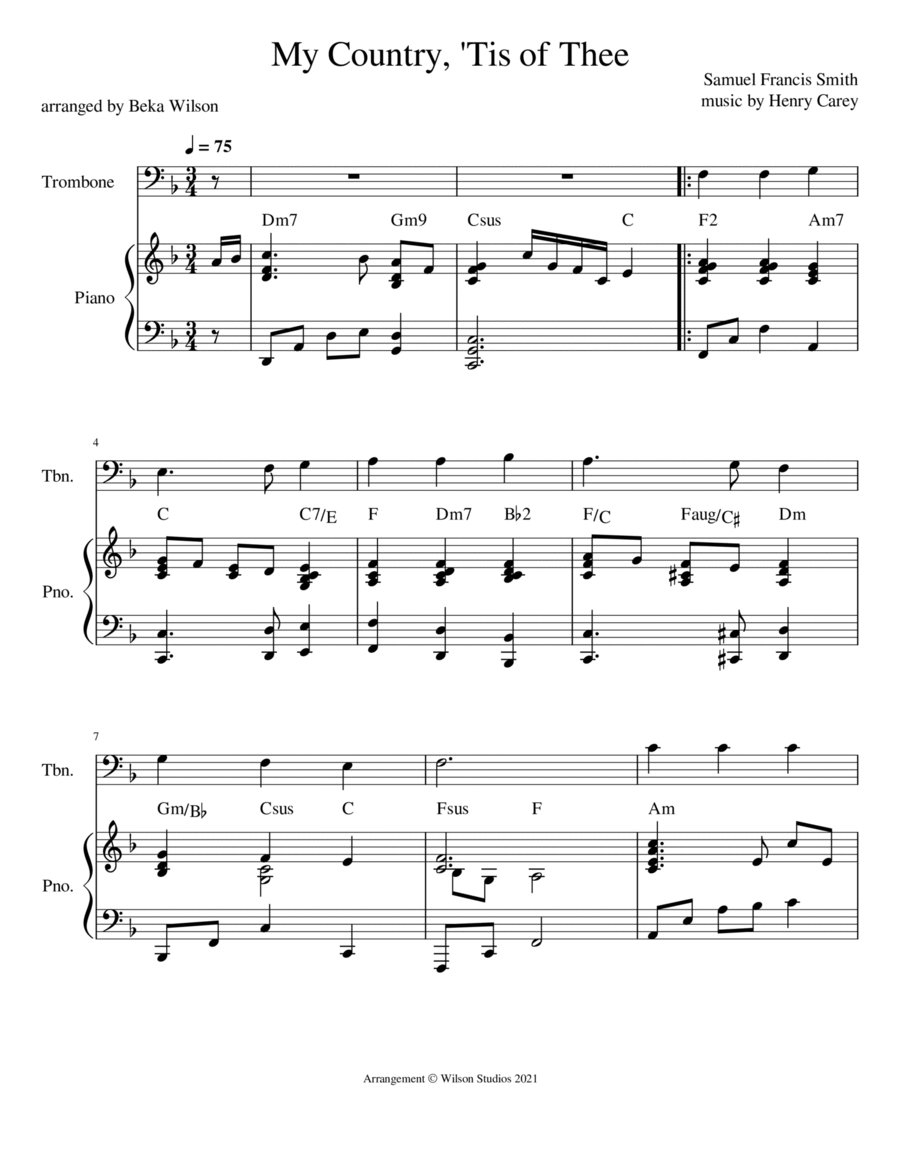Piano,Trombone - Level 3 - Digital Download SKU: A0.786648 Composed by Samuel Francis Smith, Henry Carey. Arranged by Beka Wilson. Christian,Folk,Holiday,Patriotic,Sacred. Score and part. 5 pages. Beka Wilson #6332729. Published by Beka Wilson (A0.786648). This beloved patriotic hymn is perfect for any patriotic function, or for a church offertory or prelude for Independence Day, Memorial Day, or Veterans Day. Length: around 2.5 minutesLevel: intermediate for most instruments5 pages (includes score and separate solo part)This arrangement is available as a solo for voice, piano, flute, oboe, clarinet, bassoon, alto sax, tenor sax, F horn, trumpet, trombone, violin, viola, and cello. It is also available for SATB Choir.Want this arrangement in a different key or for a different set of instruments? Shoot me an email at bekmars10@gmail.com for a custom version of this arrangement that I can post on Sheet Music Plus for you.
